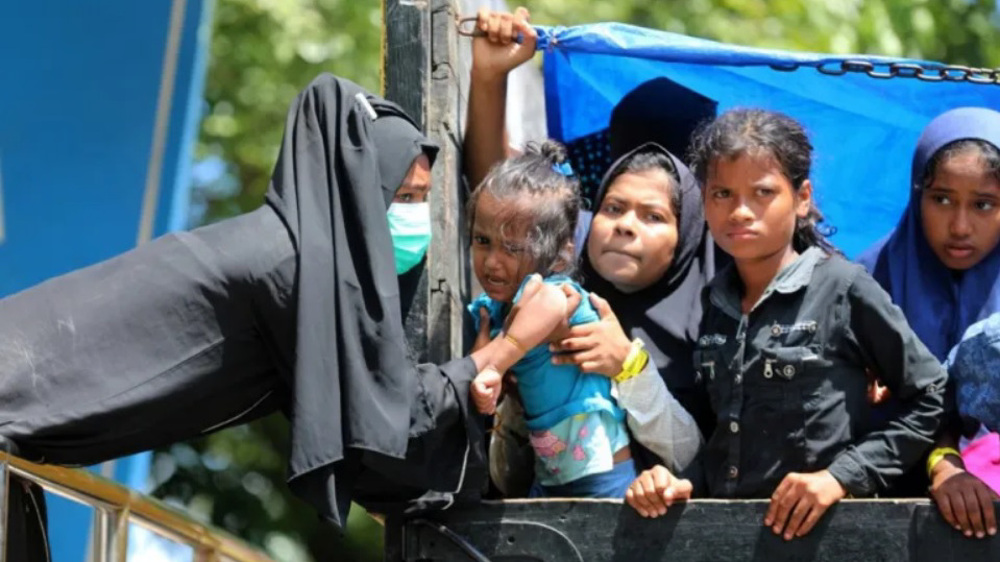Rohingya Muslims forced to flee to Bangladesh: Pictures
The International Organization for Migration (IOM) says that over the weekend hundreds of Rohingya Muslims have fled Myanmar and entered Bangladesh to escape the increasing violence in the country.
An unnamed official from the UN’s migration agency said on Monday that he had seen over 500 Rohingya Muslims enter aid camps set up along the border.

The 1.1 million-strong Rohingya community, which the government brands as illegal immigrants from Bangladesh, has been suffering widely-reported systematic aggression for years on end. The violence has been interpreted as an attempt to force them out of the country’s demographic configuration.

Over the past few months, government troops have increased their attacks against the Rohingya villages, setting fire to several of them. Earlier in the day, Human Rights Watch (HRW) said the government in Myanmar had destroyed as many as 1,250 residential structures belonging to the Muslim minority group in the country just over the past six weeks.

“At that time, I fled with my four daughters and three grandsons to a nearby hill ... later, we managed to cross the border," said a displaced villager.

The Myanmar government has rejected all claims over their destruction of the Rohingya villages and over the killing and raping of Rohingya people. Myanmar has also rejected claims that the Rohingya are escaping to Bangladesh.
"We checked with the military and police about people fleeing to Bangladesh since October 9. Some people fled from their villages, but we put them back to their villages," said the presidential spokesman and member of the newly-formed information taskforce on Rakhine, Zaw Htay.

"If something like that happened, we are concerned and we will continue to investigate. We are not rejecting all allegations...our government always checks all the allegations, and some were found to be untrue," added Htay.
For the past 40 days, Myanmar has also suspended UN aid efforts to the Rohingya that included the provision of food and cash. The UN aid agency has called on the Myanmar government to permit the distribution of aid.

"The idea is to help them where they are, so that they wouldn't be forced to cross over into Bangladesh," said the regional public information officer for the United Nations High Commissioner for Refugees, Vivian Tan.

"If they can't get the assistance where they are then, if they are forced to cross into another country like Bangladesh, we're really appealing to the Bangladeshi government to honor its long tradition of hospitality and open its borders to these refugees," Tan added.

Government-allied Buddhist extremists have been waging communal violence in Rakhine, where the Rohingyas are concentrated, since 2012. Hundreds of people have been killed and tens of thousands forced from their homes as a result.
VIDEO | Press TV's news headlines
Iran to start no war, but Armed Forces poised to defend homeland: Govt. spokeswoman
VIDEO | UNMHA exit: A legacy of failure in Hudaydah as violations persist
VIDEO | Winter hardships deepen suffering in occupied West Bank
VIDEO | Homes under occupation: When living rooms become military posts
War could reach your own doorsteps: Iraqi anti-terror group warns Iran’s enemies
IRGC: Iran holds upper hand in determining any war’s endgame
'Fingers on trigger': Iran warns of strong response while signaling openness to 'fair' deal












 This makes it easy to access the Press TV website
This makes it easy to access the Press TV website